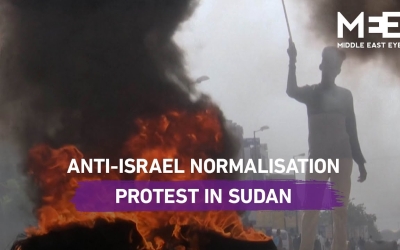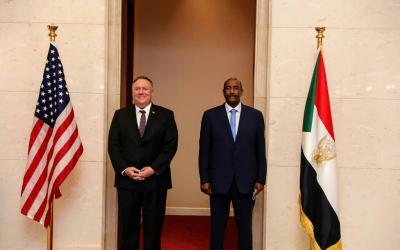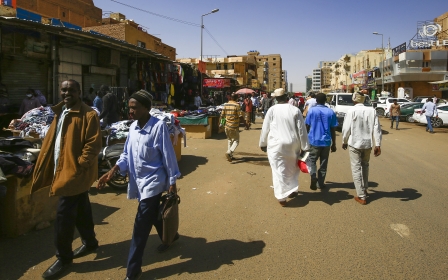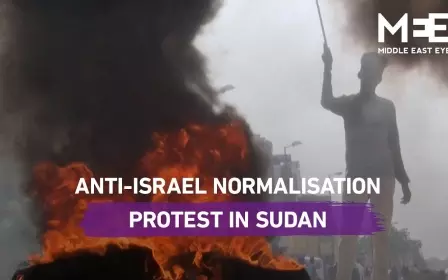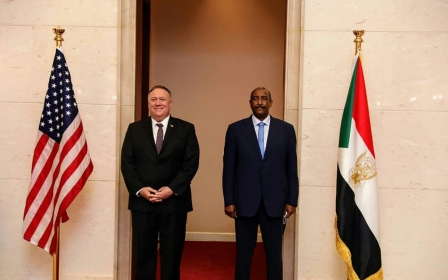Sudan protesters demand government resign over IMF-backed reforms
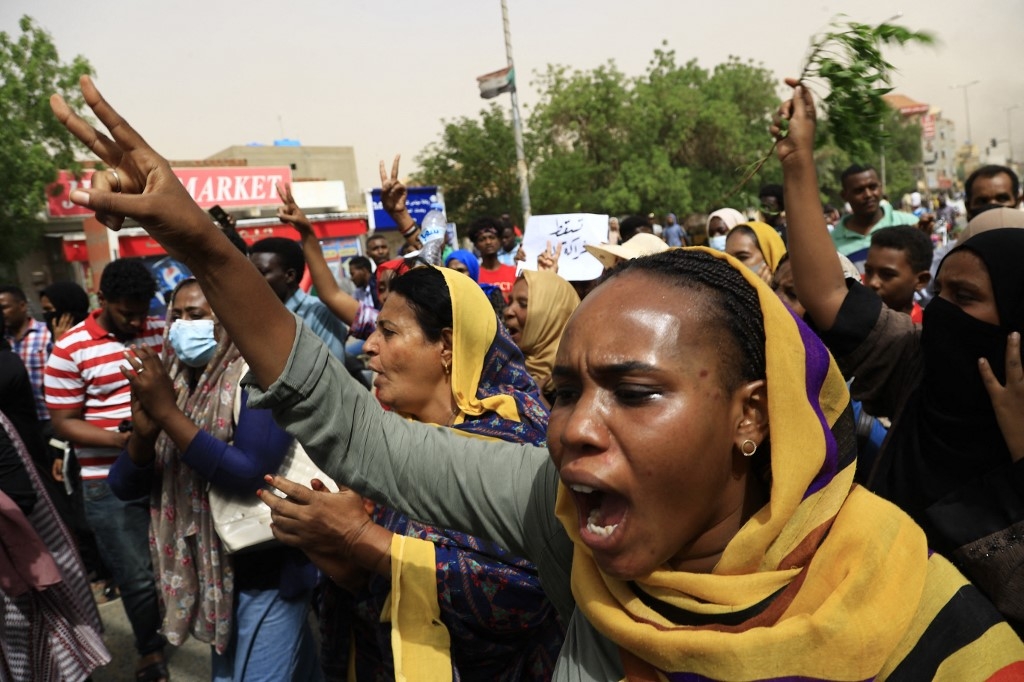
Hundreds of Sudanese protesters took to the streets of major cities on Wednesday to demand the government's resignation over IMF-backed economic reforms seen as too harsh.
"We want the fall of the regime" and "No to (IMF) policies", shouted demonstrators who massed outside the presidential palace in Khartoum.
The protests erupted a day after the IMF approved a $2.5bn loan and debt relief agreement that will see Sudan's external debt reduced by some $50bn.
Public discontent has mounted over the reforms that slashed subsidies on petrol and diesel, more than doubling their price.
The dozens who had gathered in Khartoum burned tyres and brandished banners that read "Bread for the poor", before they were dispersed by police who fired tear gas, AFP reported.
In Omdurman, the capital's twin city across the Nile, security forces also used tear gas on protesters who attempted to join the demonstrations in Khartoum.
In Kassala, in Sudan's east, dozens of protesters demanded justice for people killed in demonstrations that toppled autocratic president Omar al-Bashir in April 2019.
"Blood for blood, we will not accept compensation," some of them chanted.
Sudan will receive $1.4bn immediately under the 39-month IMF loan programme. The country is the penultimate candidate for the IMF-World Bank HIPC programme and by far the largest debt-holder.
'Big day for Sudan'
Payment of the arrears is the "decision point" that allows access to debt relief under the HIPC initiative, which the officials said would cover $50bn or about 90 percent of the country's foreign debt.
Sudan's economic crisis, deepened by decades of isolation and sanctions, includes inflation approaching 400 per cent, shortages of basic goods and services and a spike in food insecurity.
Recent economic reforms have included the removal of fuel subsidies and a sharp exchange rate devaluation under an IMF-monitored programme required to enter the HIPC initiative.
Analysts said that the HIPC decision came unusually quickly, a product of international goodwill towards Sudan's civilian leaders sharing power with the military during a fragile political transition, and acknowledgement of rapid, painful economic reforms.
"It's not over yet but this is a really significant milestone on the country's path to a more prosperous future," Ian Clark, a partner at legal firm White & Case, which is advising the government on debt restructuring through the HIPC with financial adviser Lazard, told Reuters.
Another condition for accessing debt relief through the HIPC was being removed from the US list of state sponsors of terrorism, achieved last year after Sudan agreed to provide compensation to victims of attacks and normalise relations with Israel.
"This is a big day for Sudan and reaffirms that all the efforts and sacrifices of the Sudanese people are recognised and rewarded," Prime Minister Abdalla Hamdok said in a statement.
Biden support
US President Joe Biden has continued the thaw in relations between the two countries since taking office in January, and his administration has taken a leading role in encouraging other governments to join in the effort to provide debt relief.
The US Treasury in March announced $1.15bn in bridge financing to help clear Sudan's arrears at the World Bank, after Khartoum's civilian-backed government announced a series of reforms.
The US Treasury said that Washington had also committed to contributing up to $120m in grant resources to fund IMF debt relief for Sudan under the first phase of HIPC.
In a statement on Tuesday, US Treasury Secretary Janet Yellen said: "This is a historic moment for Sudan and its people.
"These steps will unlock much-needed financing and will help build the foundation for poverty reduction, inclusive development and economic growth."
Yellen also praised the efforts of Sudan's civilian government to stabilise the economy.
Food, transportation costs rise
Sudan is the last country to clear arrears with the IMF, which now faces no repayment arrears from its members for the first time since early 1974.
Georgieva praised the government's "strong policy commitment" that has shored up public finances "while channelling assistance to the most vulnerable".
But she said: "Continued reform commitment will be critical to achieving the programme’s objectives, as well as to reduce poverty and secure higher and more inclusive growth."
The reforms so far have caused food and transportation costs to surge, forcing Sudanese people to make sacrifices.
There have been frequent protests, including Wednesday's demonstrations.
"It's imperative that [the government] communicate properly to the population… on this so people don't look up and just see the pain," Jonas Horner, Sudan analyst at the International Crisis Group, told Reuters.
In an interview with AFP last month, Hamdok said the reforms were needed to secure debt relief and the government was calling on foreign investors to "explore the opportunities for investing in Sudan".
Middle East Eye delivers independent and unrivalled coverage and analysis of the Middle East, North Africa and beyond. To learn more about republishing this content and the associated fees, please fill out this form. More about MEE can be found here.


